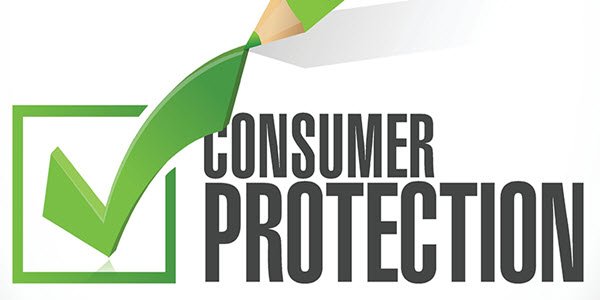
Online Shopping Consumer Rights
Many readers have asked about their Online Shopping Consumer Rights so here is an article published by Michelle Roberts of the More Money Review Proof Magazine. It provides great information and should clarify a lot of doubts. Read on…
In the October 2015 edition of Proof! magazine I ran an article on the new Consumer Rights Act. If, for any reason, you missed that edition you can find it over on the More Money Review website by visiting: http://www. moremoneyreview.com/proof-magazine
The new act came in to force in the UK on 1 October 2015 and was claimed to be much clearer and much easier for both consumers and traders to understand and uphold. What was so special about the act is that it was the first time consumer’s rights in regards to digital content had been set out in a legal act. Until then the laws regarding digital content were unclear and open to debate.
In fact there were debates up until the act came in as to whether digital content could be classified as a ‘good’ and, as a result, consumers of digital goods were often not given the same rights afforded to consumers of physical products.
Of course, this affected all More Money Review members directly as extra-income seekers, as most online marketing and home-business systems are sold as digital downloads.
To give you a quick recap, the new Consumer Rights Act 2015 declares that all digital content/products sold in the UK must be:
- Of a satisfactory quality.
- be fit for particular purpose.
- Be as described.
This was great news and about time, in my opinion!
But what if you had bought something that was not of a satisfactory quality, or fit for purpose, or as described prior to sale? What rights do you have?
Well, section 42 of the Consumer Rights Act 2015 laid out consumer’s rights to enforce terms about digital content.
The law states that if the content you have been sold does not “conform to the contract” you have the right to repair or replacement, the right to a price reduction or the right to a refund.
If you request a repair or replacement then the trader must do so within a reasonable time and without significant inconvenience to the consumer, and bear any necessary costs incurred.
If the vendor does agree that you are entitled to a refund or a price reduction, it must be provided within 14 days from the day the vendor agrees to give you it.
That’s even better news for More Money Review members buying trading and home-business products online. And it brings the law regarding those types of products in to line with the laws regarding physical products you buy online too.
But what if you deem something to be unsatisfactory, unfit for use or not as described, and you request a replacement or refund from the vendor and they dispute your claim?
After all, when it comes to online income opportunity products there can be grey areas over whether products are as described or fit for purpose (especially gambling products that are sold on past performances) and there are bound to be arguments between consumers and vendors over whether the consumer’s rights have been infringed.
Even with physical products you buy online, disputes with vendors are likely to happen.
And that is why the new act laid out provision for Alternative Dispute Resolution (ADR) in all sectors (some sectors, such as financial services, energy and telecoms already have ADRs in place). ADR will be available to all consumers and is a much cheaper and quicker route to solving disputes with vendors than going through the courts.
Companies offering ADR services act as impartial mediators. They listen to both sides of the argument presented and either help both parties come to a mutual agreement, or else make a final decision in favour of one party.
Choosing to go through an ADR to solve a dispute with a vendor still costs money and takes time, but is so much cheaper and much less hassle than taking them to a small claims court.
Now, in recognition of the fact that an ever-increasing amount of our shopping is now conducted online, the European Commission has set up an ever-so-handy online platform to help consumers who have purchased products online.
It’s called the Online Dispute Resolution (ODR) platform and went live last month – on 15 February 2016, to be exact. The website can be found here: https://webgate.ec.europa.eu/odr/ main/?event=main.home.show
Now, you probably haven’t heard of it as it hasn’t been widely promoted or discussed but it could be so useful to you and your fellow More Money Review members as the extra income opportunity products you purchase are purchased online.
The Online Dispute Resolution is described as a platform for you to use “to make a complaint about a good or service you bought over the internet and find a neutral third party (‘dispute resolution body’) to handle the dispute.”
The process for making a complaint is so easy and has been broken down in to four steps:
Step 1 – Submit a complaint: This is easy; you just fill out the online complaint form on the ODR website. The site will inform the other party that a complaint has been submitted.
Step 2 – Agree on a dispute resolution body: You (the consumer) and the vendor have 30 days to pick and agree on which dispute resolution body you will use to mediate on your case.
Step 3 – Dispute is handled: The ODR team will send your case to the dispute resolution body you have picked and they will review your case. They will take up to 90 days to decide on an outcome.
Step 4 – Closure of the case: Once the outcome has been relayed to both parties the case will be closed.
The Online Dispute Resolution website has a list of accredited dispute resolution bodies. Some bodies specialize in just one area (e.g. motoring) although most offer their services across a wide range of industries including the gambling industry.
If you are struggling with filling in the complaint form or finding a resolution body you can contact a National Contact Point for guidance. You can find full details of those on the ODR website.
If you have bought a product or do so in the future that you believe contravenes the legislation laid out the Consumer Rights Act 2015 and want to make a complaint here are some extra hints and tips for using the ODR:
- Each dispute resolution body has its own rules and procedures for handling your case and communicating with involved parties.
- The Online Dispute Resolution website is free to use to make a claim but dispute resolution bodies will charge fees for their services.
- You can only use it if you live in the EU and if the trader is based in the EU too.
- You can’t use the service if your complaint is about goods or services bought offline (e.g. physically in a shop), it has to be purchased online. You also cannot use this service if your complaint is about higher education or healthcare services.
- You must show that you have attempted to resolve the complaint with the trader directly prior to submitting a complaint to the ODR.
- In some cases the dispute resolution body’s outcome (final decision) is binding but in others its non-binding which means that if you are not happy with the outcome you can proceed to take your complaint to court.
(It’s best to try and find a resolution body whose decisions are nonbinding or only binding for traders so that you can take the dispute further if you wish).
It’s also worth noting that all online traders who sell goods, services or digital content to consumers via their own website within the EU and/or any online marketplaces (such as eBay or Amazon) must provide a link to the ODR platform on their website.
This rule came in to effect on 9 January 2016, along with the rule that all online businesses need to supply at least their contact email address. An online ‘contact us’ form does not count – it has to be an email address.
Now – I’ve looked and have come across companies who have yet to add this information to their websites – naughty, naughty!
The creation of the Online Dispute Resolution website is great. Along with the Consumer Rights Act 2015, it helps you, as a consumer, to feel more confident in buying both goods and services of any kind online.
Knowing that you have the support of the law and an easy and cheap method of getting justice against dodgy dealers then you will feel emboldened not to just be taken ‘for a mug’ but stand up for your rights.
But what if you don’t want to use the Online Dispute Resolution platform, nor a dispute resolution body to resolve your complaint?
Or, what if the product you’ve bought wasn’t purchased online? What other options do you have?
The first port of call should be Citizens Advice (https://www. citizensadvice.org.uk) – they will be able to advise you on the best course of action.
If you think the trader you have dealt with has broken the law or acted unfairly then they may advise you to contact Trading Standards (http://www.tradingstandards.uk).
Or, you can complain to an ombudsman: find out what ombudsman services are available here: https://www.ombudsman-services.org
You can, of course, also take a vendor to the small claims court if using a dispute resolution body doesn’t work. You can find out how to go about doing that here: https://www.citizensadvice.org.uk/ consumer/going-to-court/going-to-court/.
Finally, if you feel if you have been the victim of fraud you should of course report it to Action Fraud, who will investigate the company. You can find out all about them and how to report a crime here: http://www.actionfraud.police.uk/.

